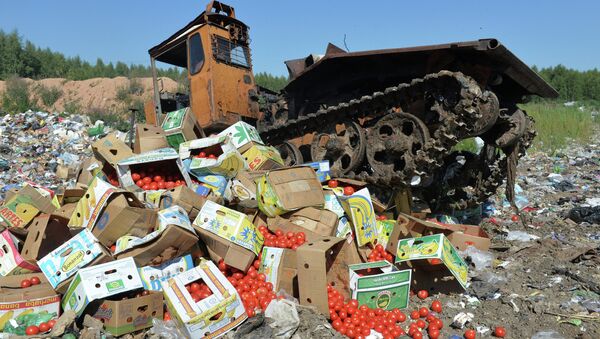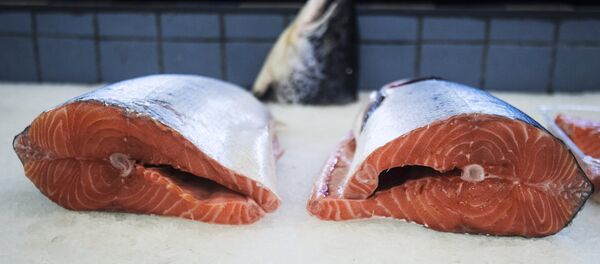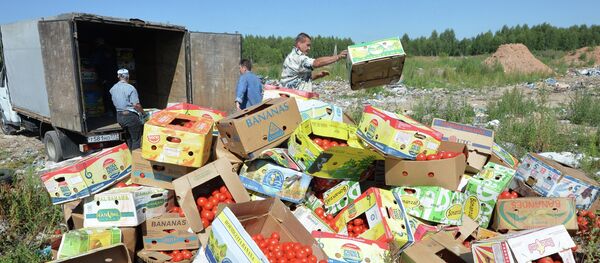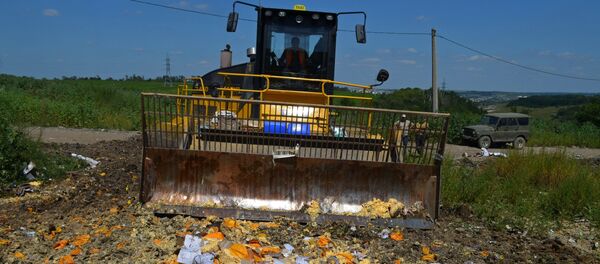"Hundreds of tons of foodstuffs are being burned in food crematoriums and destroyed using other methods. Their destruction is an extreme and costly measure. For the purposes of observing the ban on the import of [sanctioned] agricultural production, raw goods and foodstuffs into Russia, their confiscation is sufficient," an explanatory note to the bill noted.
The draft legislation proposes that agricultural products falling under Russia's food ban would be subject to seizure, becoming the property of Russia. Aiming to quell worries about shoddy food safety standards, the bill notes that products of sub-standard quality would be subject to destruction and recycling.
Measure a Response to Public Discontent Over Destruction of Food
Earlier, Western and Russian media reported heavily on Russians' discontent over a presidential decree stepping into force earlier this month authorizing the destruction of several hundred tons of confiscated embargoed food goods. A petition over at US-based online petition tool Change.org aimed at distributing seized food to the needy has gathered over 350,000 signatures. The petition was addressed to President Vladimir Putin, Prime Minister Dmitri Medvedev, and the leaders of Russia's parliamentary fractions.
On Wednesday, independent sociological research firm Levada Center published findings from recent polling, finding that nearly 40 percent of Russians considered the presidential decree 'entirely positive' or 'somewhat positive', with 48 percent of respondents considering it 'somewhat negative' or 'entirely negative', and 13 percent finding it 'difficult to say'.
The presidential decree approving the decision to destroy confiscated embargoed foodstuffs stepped into force on August 6, following reports questioning the effectiveness of Russia's ban on the import of several categories of food products from the European Union, the United States, Canada, Australia and Norway, introduced in August of last year. The measure has served as Russia's response to several rounds of anti-Russian sanctions introduced earlier by these countries over Russia's alleged involvement in the ongoing civil war in Ukraine. In June, the Russian government decided to extend the embargo until August 2016, in response to the extension of EU sanctions.





